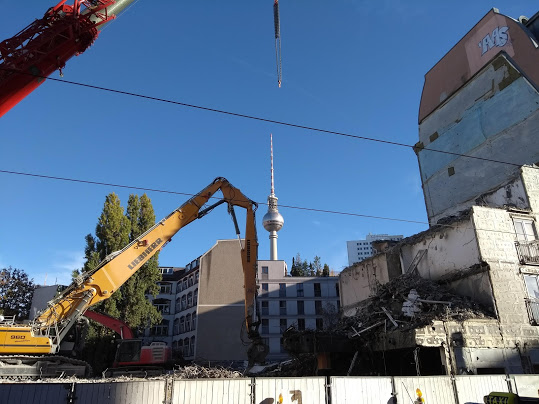
Safety in Berlin (2023)
Berlin is still very safe, day and night. You are very unlikely to be mugged, attacked and subject to violent crime, or have troubles walking home at night. Obviously, it’s a big city, and bad things could happen but, if you are coming here from the United States, for example, you are likely to be much safer here than you are at home.
There are neighbourhoods perceived as unsafe, which is different than how unsafe they are. If you look at the current Criminal Atlas prepared by the Berlin police, crime rates in central Mitte are actually a little higher than in immigrant-based Kreuzberg and Neukölln. There’s some racism at play here in the mass media, and from right-wing politicians. The city, meanwhile, confirms that there aren’t any ‘no-go zones’ in the city.
Alexanderplatz at night is a place to be careful, as it statistically has the highest number of crimes in the city. The U-Bahn stations of Kottbusser Tor (‘Kotti’) and Görlitzer Bahnhof (‘Görli’) in Kreuzberg (and the adjacent areas, such as Görlitzer Park), are known for drug dealers and their confrontations with police, but the number of people openly soliciting to buy their drugs has decreased, perhaps because of the establishment of a new police station in Kotti. In any case, you are unlikely to face anything but dealers pushing their drugs, but it’s worth being alert. Some U-Bahn stations on the U8 line south of Kotti have also become places where people are doing drugs, especially at night.
Berlin feels very safe and so many visitors and residents let down their guard and do things that they would never do in New York or London, like leaving valuables unattended. I see people leaving their computers on café tables when they go to use the toilets. I was recently in a Neukölln bar and a friend left her purse on the floor under her chair: within a quarter hour, I caught a guy crawling on the ground to steal it (!).
There are also a number of scams to avoid, especially in touristy areas: you might find people coming up pretending to be a police officer, or asking if you ‘speak English’, which is a distraction technique that might not end well. Just ignore them or tell them to go away. Pickpocketing in public transportation also happens. People who fall asleep on the S-Bahn sometimes wake up to find their mobile phones are gone. The fishing of mobile phones from outdoor tables at bars and restaurants is also a problem (just keep your phone in your pocket and don’t leave it on the table).
Here’s the index to the Moving to Berlin Guide, click on what you want to read next!
-Media, Films, and Books about Berlin
This is an independent guide to Berlin, with no ghostwritten content and no sponsored links or tips, from The Needle.
Never miss a post! Subscribe:
For a history and portrait of Berlin, do check out my book!
(the author asserts his right to copyright, revised 07/2023)

